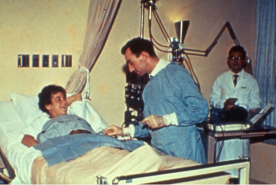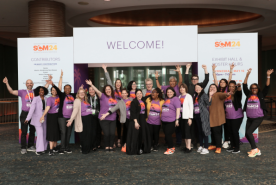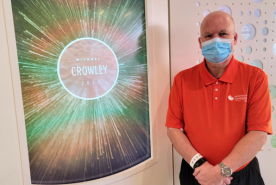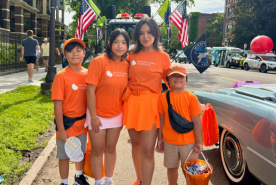Tips for writing a letter or social media post to your friends, family, and/or community
- Make it personal, tell YOUR story (what is treatment like, how do you feel)
- Use information on kidney.org to include facts on kidney disease, living donation, and transplant.
- Include a photo with your social media post if possible. It is a known fact that social media posts containing photographs generate greater engagement.
- Invite people to learn more and provide contact details.
- Be prepared to field follow up questions about your health and the transplant process from concerned friends and family members.
- Ask you transplant center if they want their contact number posted in your letters. They may have a special assistance line, or prefer that people call you first.
Sample letter/social media post
Dear Friends,
Some of you may know that I have kidney disease. Over time, my kidney disease has gotten worse causing my kidneys not to work well enough to keep me alive. This is what I am facing now, and my treatment options are limited to dialysis treatments or a kidney transplant.
Getting regular dialysis treatments, usually three times a week for four hours at a time, will help my kidneys do their job and keep me alive, but a transplant would offer me more freedom and the ability to live a longer, healthier, more normal life. A transplant would also give me more time to do the fun things I enjoy most, like spending time with my family and friends.
However, finding a kidney for a transplant is not easy. Just ask the 100,000+ people on the waiting list for a deceased donor kidney like me. Time is not on our side. Some wait for years; many die while waiting. The average wait time is five years or more for a kidney from a deceased donor. However, there is another option: receiving a kidney from a living donor.
Asking a family member or a friend to consider donating a kidney to me is difficult, but it greatly improves my chances of getting a transplant. A living kidney donation typically lasts longer and has better function.
You might not know a lot about living donation - I know I didn’t before kidney disease affected my life. Understandably, some people are afraid about the surgery and what living with one kidney will mean for them. Here’s some basic information about kidney donation:
- You only need one kidney to live a healthy, long life.
- Most donor surgery is done laparoscopically, meaning through tiny incisions.
- The recuperation period is usually fairly quick, generally two weeks.
- The cost of your evaluation and surgery will be covered by my insurance. The hospital can give you extensive information on this.
- You will have a separate team of healthcare professionals to evaluate you as a living donor. Their job is to help you understand the risks and benefits and look out for YOUR best interests.
You can also learn more about living donation on the National Kidney Foundation (NKF) website: www.kidney.org/livingdonation or by contacting the NKF’s free, confidential helpline at 855.NKF.CARES (855.653.2273) or nkfcares@kidney.org. If you want to talk to someone who’s already donated a kidney, NKF can also help.
Thank you for taking the time to read my story. If donating a kidney to me is something you would like to consider, I would be happy to tell you more about my story and explore the process of determining if you are a match for me. You can also contact my transplant center directly at _____________.
However, I know living donation may not be right for everyone — but you can still help! Consider being an organ donor after death and also, help me by sharing my story with everyone you know. At the very least I want to bring awareness to kidney disease and living donation. I am hopeful my efforts will help me receive a kidney sooner and encourage others to consider helping the many people on the wait list.
Thank you,

















